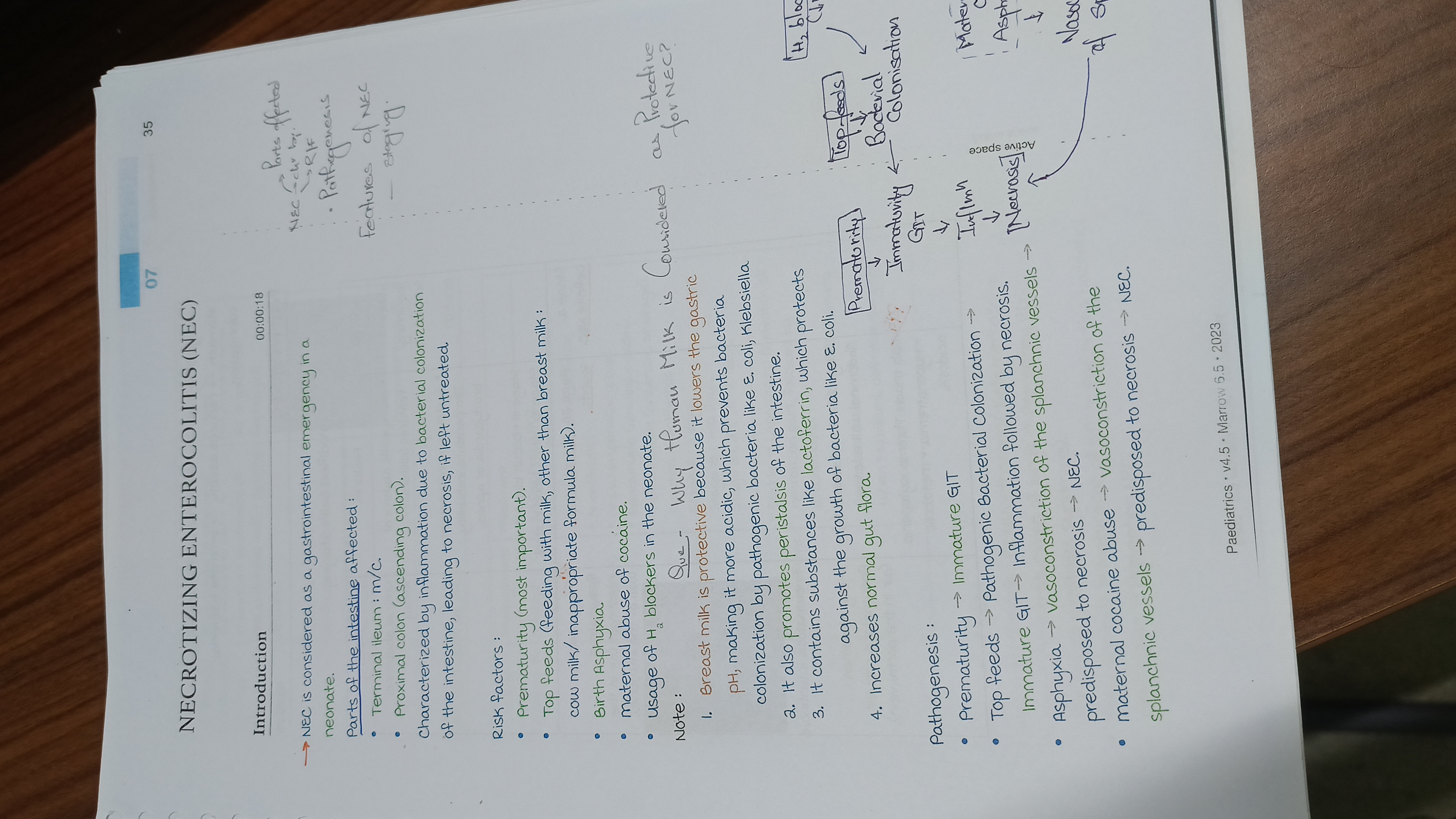Why is human milk considered as protective for NEC?

Understand the Problem
The question is asking why human milk is considered protective against necrotizing enterocolitis (NEC) in neonates. The answer provided explains the protective factors of breast milk.
Answer
Bioactive substances in human milk lower gastric pH, supporting gut health and reducing NEC risk.
Human milk is protective against NEC because it contains bioactive substances that provide bactericidal and immune-modulating activities. It lowers gastric pH, promotes peristalsis, contains protective substances like lactoferrin, and supports normal gut flora, reducing harmful bacterial colonization.
Answer for screen readers
Human milk is protective against NEC because it contains bioactive substances that provide bactericidal and immune-modulating activities. It lowers gastric pH, promotes peristalsis, contains protective substances like lactoferrin, and supports normal gut flora, reducing harmful bacterial colonization.
More Information
Human milk provides essential nutrients and immune factors that create a microbiome-host relationship unfavorable for pathogens causing NEC.
Tips
A common mistake is not considering the variety of bioactive components that protect against NEC, focusing only on nutrition.
Sources
- Protective effects of different doses of human milk on neonatal - ncbi.nlm.nih.gov
- Human Milk is the Feeding Strategy to Prevent Necrotizing - link.springer.com
- Human breast milk: A promising treatment for necrotizing enterocolitis - sciencedirect.com